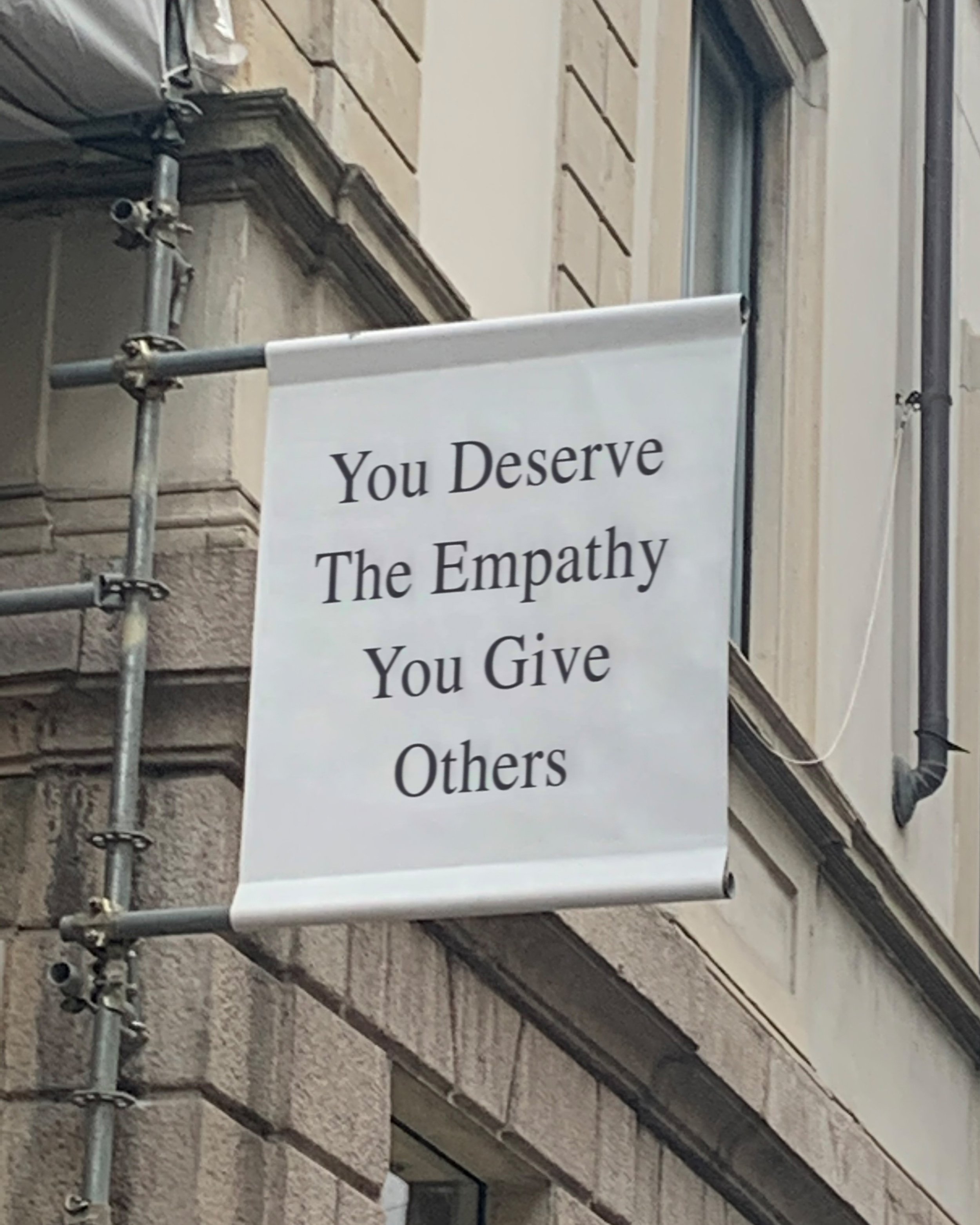Blog
Popular Topics

How to Know If You Need Therapy (Even If You’re High-Functioning)
Wondering if therapy is right for you—even if you're high-functioning? At Nourished Wellness Group, we specialize in holistic therapy in Encinitas and virtual therapy across California. Learn the subtle signs that therapy can help, especially if you're navigating stress, anxiety, or burnout while appearing “fine” on the outside. Discover how nervous system-informed care can support deep, sustainable healing.

Gut-Brain Connection: How Gut Health Affects Mental Health and Mood
Understanding the Gut-Brain Connection: How Gut Health Impacts Mental Well-Being
Discover how your gut health influences mood, stress response, and overall mental well-being. At Nourished Wellness Group, we explore the vital link between gut health and mental health, emphasizing the role of the gut-brain axis in regulating emotions and cognitive function. Learn practical strategies to support a healthy gut and improve mental clarity, emotional resilience, and stress management. Explore our holistic approach to wellness and start your journey toward a balanced mind and body today.

The Power of Restorative Rest: How it Heals Anxiety and Trauma
Restorative rest is essential for recharging the body and mind, activating the parasympathetic nervous system to reduce stress, tension, and inflammation while promoting long-term physical and emotional health. Unlike passive scrolling or idle relaxation, restorative rest involves intentional practices like eating slowly, walking mindfully, or putting your phone away to signal safety to the brain and regulate the nervous system. Prioritizing rest isn’t lazy—it’s a powerful investment in productivity, creativity, and overall well-being.

Healing Through Connection: The Power of Nourished Relationships and Co-Regulation
Curious to learn more about the influence your relationships have on your nervous system and stress reponse? Let's explore the impact of relationships on the healing journey. Our nervous systems thrive in the presence of safe and stable individuals, making nourishing relationships one of the most powerful tools in healing. Learn ways to find healthy individuals to create relationships with and discover how transformative a safe support system can be.

Navigating Relationships and Intimacy After Sexual Trauma
People who have experienced sexual trauma in their past can feel an intense impact on their ability to connect intimately with a chosen partner. This blog explores what sexual trauma is, how it may be impacting your relationship, how to discuss with your partner, and strategies to self-care.

The Importance of Self-Compassion
Self-compassion is often thought to be soft, weak, or unproductive. But self-compassion isn't wallowing and, actually, research shows numerous benefits of practicing self-compassion. We'll explore what self-compassion actually is, what the research says, and how to bring in practices to everyday life.

How to Map Your Nervous System
In this blog, we begin to provide a detailed description and guided practice of how to map your nervous system. Mapping your nervous system practice involves developing a deeper understanding of how your body responds to stress, relaxation, and everyday stimuli. By observing bodily sensations, emotional responses, and thought patterns, you create a personalized framework that helps you navigate your nervous system's unique landscapes. Let's begin to build awareness from the inside out.

My Family Doesn’t Believe in Therapy
Starting a therapeutic journey to improve your mental health can be very difficult to begin. It is even more challenging when your closest network of family, friends, or chosen family, are not supportive of therapy both intentionally or unintentionally. This post explores why family or friends may be unsupportive and how to best help you navigate through it.

The Science of Connection: Why Neurobiology is Important in Couple’s Therapy
The neurobiology of connection is essentially what happens in the brain when we are in connection with others. In a hyper-world, it can be easy to forget that we are social creatures. Connection isn’t just something we want, it’s something we need. Just like air, we can’t survive without it. This blog explores the connection between Polyvagal Theory, Attachment Styles, and Couple’s Work.

I’m Dissociating During Sex…Now What?
Dissociating is a protective mechanism, that feels like a disconnect between your external environment and being present in your body. This blog explores what’s going on when dissociating is occurring during sex, with a presently consensual partner, how to discuss with your partner, and strategies to manage.

Holistic Healing for Inner Chaos: Tools to Navigate Internal Conflict
Inner conflict is something we all encounter, and struggle to navigate. Inner conflict refers to a state of psychological distress from battling conflicting desires, needs, or beliefs within an individual. This blog reviews holistic strategies for sitting with and resolving internal conflict.

How to Find a Sense of Purpose and Meaning in Life
Many of us struggle with finding purpose and meaning in life. But don't worry, there are ways to discover what truly matters to you and live a life full of purpose. Whether it's through exploring your passions, helping others, or making a positive impact on the world, you can find the direction and motivation you need to live a meaningful life. Let’s explore in more detail.

How to Validate: A guide to support yourself or others
Emotional validation is the act of acknowledging and accepting another person's feelings as valid and understandable. In today’s blog, we will break down 5 strategies on how to self-validate or validate someone you love to enhance the connection to ourselves and others. We often feel more connected to ourselves or others when we feel heard and understood, not to mention strengthens the relationship with ourselves or with someone we care about.

How to Build an Abundance Mindset
Cultivating an abundance mindset is crucial for achieving success and happiness in life. It is a mindset that focuses on the possibilities rather than limitations and believes that there is always enough to go around. By adopting an abundance mindset, you can overcome fear and scarcity thinking that hold you back from pursuing your dreams. Instead, you will be more open to new opportunities, embrace challenges, and see failures as opportunities for growth.

The Symptoms and Experience of Anxiety
If you're experiencing symptoms of anxiety, you're not alone. Anxiety affects millions of people around the world. However, there are holistic approaches you can take to manage and alleviate anxiety symptoms. By adopting a holistic approach to addressing your anxiety, you can cultivate a greater sense of calm, balance, and overall wellness. Let’s explore in more detail.

How to Stop Overthinking: 10 Ways to Decrease the Habit
Overthinking can be a major obstacle to productivity, creativity, and overall happiness. It can lead to feelings of anxiety, self-doubt, and indecisiveness. In this blog post, we'll explore practical tips for overcoming it. By learning to recognize and manage your overthinking tendencies, you can improve your mental health and gain more control over your life. Don't let overthinking hold you back any longer - read on to learn how to break free from this harmful habit.

How to Create a Life Worth Living: Part 2
Discover how to create a life worth living with our latest blog post. We delve into the key ingredients that make up a fulfilling life and explore practical strategies for achieving your goals. From setting intentions to cultivating meaningful relationships, our holistic approach to living will inspire you to take action and lead a purposeful life. Read on to find out more.

Nurturing Holistic Family Connections
In the tapestry of our lives, family is often the most intricate and profound thread. As we navigate the complexities of relationships, it becomes crucial to approach family dynamics with a holistic mindset, acknowledging the interconnectedness of physical, emotional, and spiritual well-being. In this blog post, we explore how a therapeutic approach can nurture holistic family connections, fostering a harmonious environment where individuals can thrive.

Validation in Relationships
Validation does not always (or even usually!) mean saying “You’re right” or “I’m sorry.” In conflict, we often fear that validating the other person is akin to “losing” the argument or giving up. It can actually be quite the opposite. Validation can build compassion, cultivate connection, and lead to strengthened communication.

6 Ways to Stop Overthinking
Exploring 6 ways to stop the overthinking spiral. Have you ever got lost in your thoughts and felt like you were spiraling down a rabbit hole? Well, if so, you are not alone. Most of us have experienced the struggling of rumination and constant chatter in our minds. Let’s explore how to manage overthinking.
